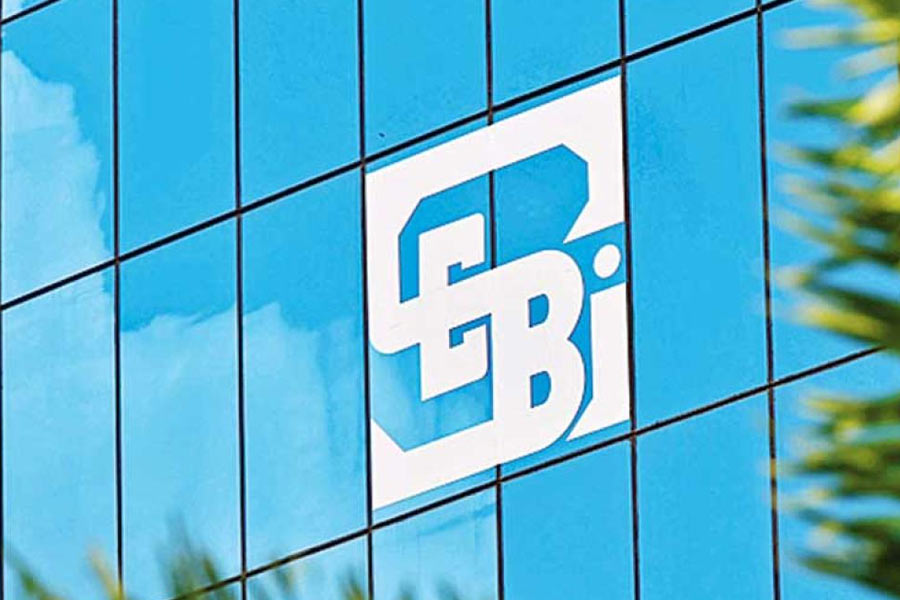The Sebi board on Friday approved a slew of reforms and ease of doing business measures that will help IPO-bound large companies and low-risk foreign investors, among other segments.
In a decision, which comes ahead of the mega initial public offerings (IPO) by NSE and Reliance Jio Infocomm, the Sebi board decided to recommend the government to amend the statutes governing minimum public offerings.
Under the proposed framework, companies with a market capitalisation between Rs 50,000 crore and Rs 1 lakh crore would be required to float 8 per cent of their equity instead of the current 10 per cent. Such firms would also get a timeline of five years instead of the present three years for achieving the minimum public shareholding (MPS) requirement of 25 per cent.
For companies with a market capitalisation above Rs 1 lakh crore, mandatory offer requirements would be reduced to 2.75 per cent from the current 5 per cent, while those above Rs 5 lakh crore would need to dilute only 2.5 per cent.
Such large companies would also be given up to 10 years to achieve the 25 per cent minimum public shareholding requirement, compared to five years at present.
This means companies can list with smaller IPOs initially, while gradually increasing their public shareholding over a longer period, reducing the immediate burden of large-scale equity dilution.
Sebi chairman Tuhin Kanta Pandey said the move, which will be implemented after the government takes a final call on it, is expected to help large issues, which often find it challenging to dilute substantial stakes through an IPO, as the market may not be able to absorb such a large supply of shares.
"Regular dilution post listing impacts issuers until MPS requirements are complied with, may lead to price overhang due to the impending equity dilution, thereby adversely affecting the interest of existing public shareholders," Pandey added.
Makrand Joshi, founder partner at compliance firm MMJC, hailed the board decision as a historic shift that will transform the primary market by offering flexibility to large companies with higher valuations to list.
When asked about the NSE IPO, Pandey said the issue should come soon, but added that it can hit markets only after completing all the formalities around a settlement order.
He said that the appointment of Srinivas Injeti as the chairperson of the equity bourse is helping in a quicker resolution of vexed issues.
It has also increased the anchor investor allocation from one-third to 40 per cent of the public issue.
The Sebi board also decided to make it easier for low-risk foreign investors to participate in the Indian securities market with the introduction of a single window access, a move aimed at simplifying compliance and enhancing the country's attractiveness as an investment destination.
The new framework -- Single Window Automatic & Generalised Access for Trusted Foreign Investors (SWAGAT-FI) -- would provide easier investment access to low-risk foreign investors, enable a unified registration process across multiple investment routes and reduce repeated compliance and documentation for such entities, Pandey said.
In another move, the top decision-making body at the capital markets watchdog decided to broaden the definition of 'strategic investor' under the REIT (real estate investment trust) and InvIT (infrastructure investment trust) norms to attract more institutional capital.
It also cleared a proposal for reclassifying REITs as "equity" and retaining the "hybrid" classification for InvITs for the purpose of investments by mutual funds and Specialised Investment Funds, which will also help attract more capital.
Meanwhile, Sebi officials conceded that the micro systematic investment plans (SIPs) have not taken off as much as desired and added that it is in touch with entities on the same.
In a move to strengthen governance at market infrastructure institutions, Sebi has decided to mandate the appointment of two executive directors (EDs) to bolster operational oversight.
The regulator, which has been acting tough against the finfluencers segment recently, has also announced amendments to rules governing investment advisors and research analysts.
Pandey said a total of 80,000 online pages have been taken down since it began its drive, and added that after Meta, Google is also set to adopt a framework where online ads are vetted by the regulator before they get served to audiences.
The board has also decided to introduce a threshold-based framework to determine the materiality of related party transactions (RPTs), based on the annual consolidated turnover of the listed entity.
The Sebi board also approved a proposal to revise thresholds for approval by audit committees for RPTs undertaken by subsidiaries and simplified disclosure requirements for smaller RPTs.
Pandey declined to comment on the investigations into the Jane Street matter or the legal strategies to be adopted by the regulator in the face of the challenge to its interim order by the New York-based hedge fund.
He also declined to comment on the progress made in the matter of extending the expiry of derivative contracts beyond the present system of weekly ones.
The chairman said there is "unnecessary speculation" in the matter of ending weekly expiries, and asked everybody to wait for the consulting paper, terming it as a complex issue, which requires a lot of study.
Except for the headline, this story has not been edited by The Telegraph Online staff and has been published from a syndicated feed.











